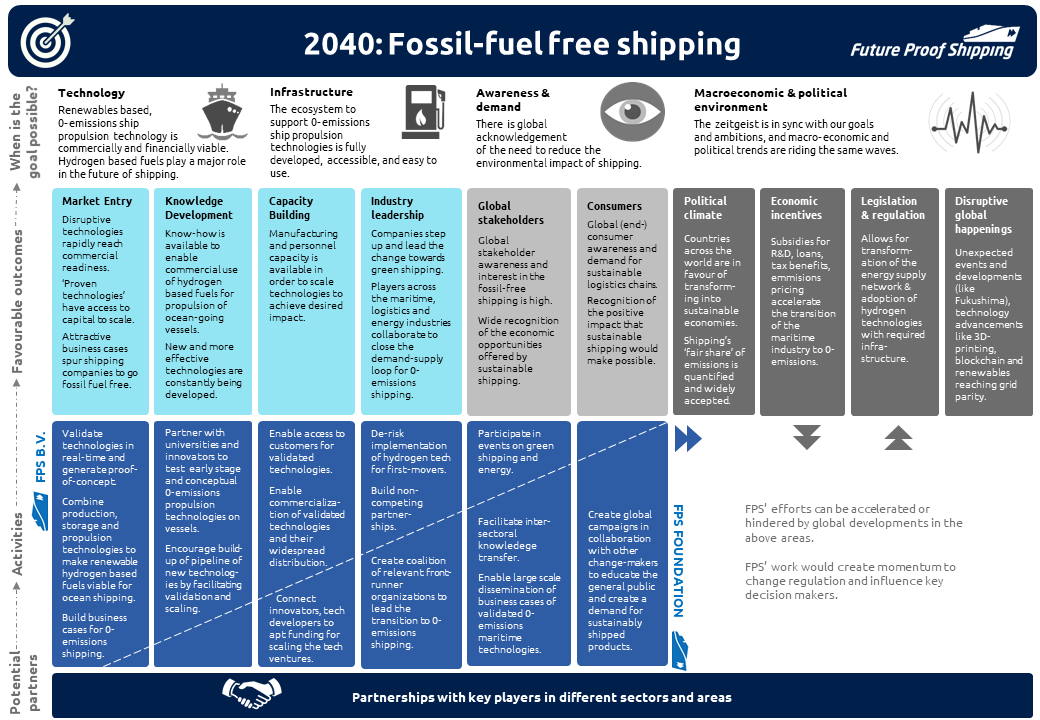Pilot project: an ammonia tanker fueled by its own cargo
By Trevor Brown on February 22, 2018
Last month, an important new consortium in the Netherlands announced its intention to research and demonstrate “the technical feasibility and cost effectiveness of an ammonia tanker fueled by its own cargo.” This two-year project will begin with theoretical and laboratory studies, and it will conclude with a pilot-scale demonstration of zero-emission marine propulsion using ammonia fuel in either an internal combustion engine or a fuel cell.
In the quest for renewable fuels for the maritime industry C-Job Naval Architects joined forces with Proton Ventures and Enviu in a consortium to further research ammonia as a fuel …
This research project will focus on the technical feasibility and cost effectiveness of an ammonia tanker fueled by its own cargo. Multiple configurations with either a combustion engine or fuel cells will be investigated. The expected project duration is 2 years and will consist of theoretical research, lab testing, a pilot and evaluation. The results should spur a wider application of ammonia as a fuel on other ship types as well.
C-Job Naval Architects LinkedIn update, 02/02/2018
Additional partners will be announced as the project develops but, to start with, the team includes ship designer C-Job Naval Architects, ammonia engineering firm Proton Ventures, and non-profit Enviu. The parties met at the first NH3 Event, last year, so it is only appropriate that they intend to present the initial results of their collaboration at the upcoming NH3 Event in Rotterdam. On the first day of the conference, May 17 2018, Niels de Vries, a naval architect at C-Job, will present “preliminary results of the theoretical research and prospects on the lab testing and pilot.”
The collaboration recently received subsidy funding from the province of Zuid-Holland, through Topsector Water.
While many projects are investigating battery technology for short-haul vessels, the only other viable carbon-neutral fuels for long-haul shipping are biofuels and hydrogen. According to the recent report published by Lloyd’s Register, biofuels are unlikely to be broadly adopted as marine fuel because their limited availability will force adoption in those markets that most value gravimetric energy density, like aviation. According to the same report, hydrogen is a less profitable fuel for the maritime sector, because its energy density is so low that carrying a sufficient quantity of fuel would displace too much cargo.
As a recent article in the Dutch shipping magazine Schuttevaer explained, ammonia fuel not only provides a solution for the problem of hydrogen’s energy density, but also for the problem of building out new fueling infrastructure. Quoting Niels De Vries, the article explains:
“The energy density of hydrogen is much lower than that of ammonia. The heating value, the so-called LHV, low heating value, of ammonia amounts to 12,700 megajoules per cubic meter, where liquid hydrogen does not exceed 8,800 megajoules per cubic meter. A difference of 44%. Ammonia can also be stored at a much more acceptable temperature and pressure. At -33.4 degrees Celsius at 1 bar and at 20 degrees Celsius at 10 bar. With pure hydrogen these figures are at -253 degrees Celsius at 1 bar and at 20 degrees at 350-700 bar. That makes ammonia more interesting as an energy carrier” …
For decades, the combustible but also toxic substance [ammonia] has been safely transported by sea in ships up to 60,000 tons. “So there is already a lot of knowledge and experience. These can be used to arrive at a safe ship design with ammonia as fuel,” says De Vries.
A distribution network is already available. This can be used for the new demand for ammonia as fuel. For the ammonia tankers there are already loading and unloading points at this moment. These can be converted into approved bunker stations in the vision of C-Job with a number of modifications.
Ammoniak als schone brandstof (“Ammonia as a clean fuel”), Schuttevaer, 01/29/2018
Enviu is a project led by a “social entrepreneur and impact investor with a shipping heritage, Mr. Huib van de Grijspaarde.” According to its website, its aim is to “build social multinationals that address social and environmental issues, and drive market development.” As part of this mission, it recently launched a venture dedicated to identifying and commercializing fuels for a sustainable maritime sector, pledging to achieve “Fossil-Fuel Free Shipping by 2040.”
We aim to contribute to a future proof shipping world by validating pioneering renewable energy technologies that have the potential to make the industry fossil-fuel and emissions free.
By enabling selected shipping companies to gain a relatively low-risk first mover advantage via the implementation of these sustainable technologies, followed by their wider dissemination, we will spur systemic change, resulting in large-scale positive economic, ecological and societal impact.
Enviu website, accessed 02/22/2018

